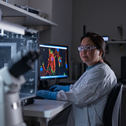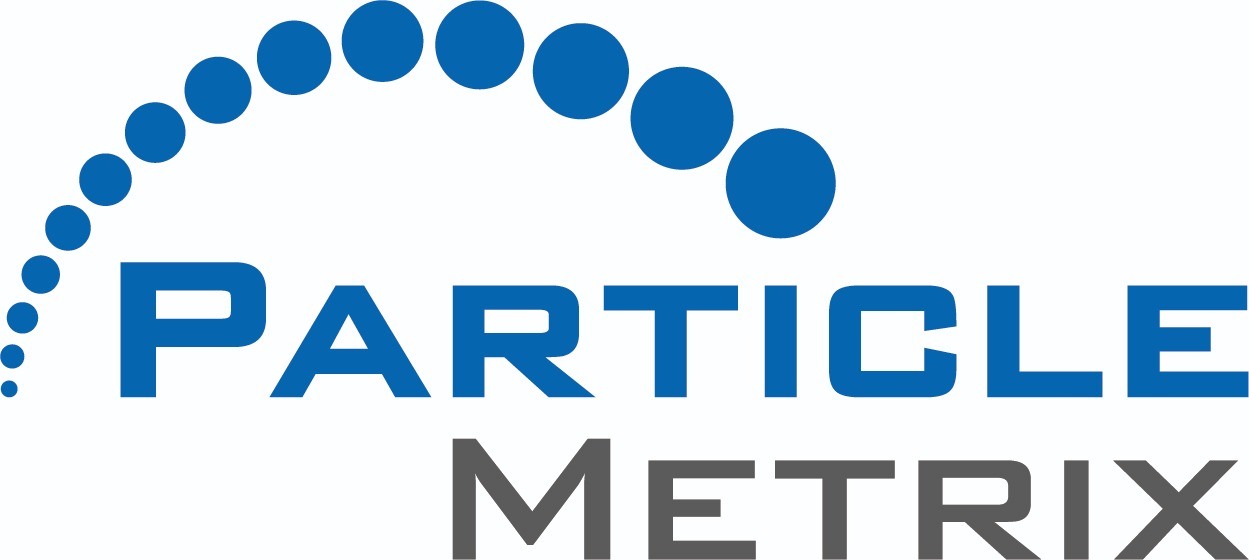The UQ Centre for EV Nanomedicine will bring together a multidisciplinary team of researchers and educators across UQ and beyond to enable best research practices in EVs with the potential to translate research discoveries to rapid benefits from research breakthroughs. Collectively, the members of the network will establish productive collaborations in EV research, leading to breakthroughs in scientific knowledge and health care.
Purpose
The field of nanomedicine is evolving at an exponential rate, partially due to the recent discovery of extracellular vesicles. Extracellular vesicles (EV) are cell-released nanoparticles that mediate cell communication locally and systemically by transferring bioactive cargo. EVs have shown promise for the diagnosis and treatment of disease, and engineered EVs can function as carriers for site-specific delivery of therapeutic agents to improve outcomes and reduce side effects. The promise of using EVs in nanomedicine is vast and the field is rapidly growing. EVs represent the next-geneation of medicine with more than 100 products in clinical trials.
Many research groups at The University of Queensland (UQ) are working on EVs for diagnosis and treatment of diseases as well as fundamental research on EV-mediated biological mechanisms. This Centre will provide training and education in experimental procedures and study design through consultations with individuals and research groups. Such consultations will ensure that EV Nanomedicine research at UQ is of the highest quality and meets international standards to maximise opportunities to deliver applications and products that ultimately benefit society.
Objectives
The objectives of the UQ Centre for EV Nanomedicine are:
- To facilitate research interactions within multidisciplinary research groups with interest in EV Nanomedicine across UQ.
- To provide consultation in experimental design and applications of EV research to a variety of stakeholders, including industry and regulatory bodies.
- To develop and rollout training and education modules on EVs developed within a quality management system.
- To increase the visibility of UQ researchers working on EVs with local and global networks through establishment of strategic partnerships.
- To increase community engagement through marketing and educational activities to highlight the potential and benefits of EV research in the community.
We aim to address global health challenges within a The National Association of Testing Authorities (NATA)-accredited Facility, and in compliance with Therapeutic Goods Administration (TGA) requirements, that prioritise the implementation of EV clinical diagnostic, and EV therapeutic applications. The UQ Centre for EV Nanomedicine will provide the UQ research community with expertise, optimised tools, and emerging technologies to support research in the developing field of EVs. Core methods and experimental design relating to EV isolation, characterisation, downstream analysis, and functional assessment will be provided. The network has the expertise, infrastructure, and state-of-the-art EV technologies to support research projects in the EV field. Our multidisciplinary teams will establish connections that amplify the impact of EV studies at UQ.
Methods
The main methods and experimental procedures within the UQ Centre for EV Nanomedicine are listed below:
- Ultracentrifugation for extracellular vesicle isolation
- Size-exclusion chromatography for extracellular vesicle isolation
- Density gradient ultracentrifugation for extracellular vesicle isolation
- Differential ultracentrifugation for extracellular vesicle isolation
- Affinity purification for extracellular vesicle isolation
- Tangential flow filtration for extracellular vesicle isolation
- EV RNA isolation
- EV quality control analysis by Nanodrop
- Nanoparticle tracking analysis for EV characterisation
- ÄKTA™ start: ÄKTA™ start is a laboratory scale preparative chromatography system designed as a stand-alone system, with intuitive design, simple flow path, and user-friendly interface. ÄKTA start offers the following features:
- Compact solutions for quick and reproducible purification
- Sample injection and fraction collection options
- Quick start methods and templates for common purification techniques
- Software enabled real-time monitoring
- The Core utilizes the ÄKTA start system for EV isolation by size-exclusion chromatography.
- 1260 HPLC
- 1260 Infinity II HPLC (high performance liquid chromatography) by Agilent
- Centre for Microscopy and Microanalysis
- Cryo-TEM and negative-staining TEM for the structural characterization of EVs.
- Mass photometry for size distribution and molecular mass studies.
- Mass spectrometry for compositional studies.
- Cryo-SEM and cryo-FIB / cryo-tomography for the study of EV secretion from cells and tissues.
- Correlative light and electron microscopy studies of EVs.
- Volume Imaging of cells undergoing shedding.
Research expertise and capabilities
View our expertise and capabilities infographic (JPG, 420.8 KB).
EV bio-manufacturing and translational platforms
- EV production standardisation
- EV regulatory-compliant biomanufacturing
- Clinical translation
Multi-omics and systems biology
- EV-based multi-omics disease profiling
- Transcriptomics
- Proteomics
- Metabolomics
Reproductive and perinatal health
- EV-based diagnostics
- Targeted therapies
- Pregnancy complications
- Fetal health
- Perinatal health
Infectious diseases and immune modulation
- EV role in viral infections, immune response, sepsis and inflammation
Regenerative medicine and tissue engineering
- EV role and biomaterials in tissue repair
- Stem cell therapy
- Orofacial regeneration
- Paediatric bone health
Neuroscience and neurodegenerative diseases
- EV-based biomarkers
- EV-based therapeutical strategies
Nanomedicine and drug delivery
- Drug delivery
- Nanomaterials
- Scalable biomanufacturing systems
Cancer diagnostics and therapeutics
- EV-based diagnostics
- Biomarkers
- Targeted therapies
- Drug delivery
- Tumour imaging
- Cancer immunology
Leadership team
Professor Carlos Salomon is an internationally-recognised leading researcher in extracellular vesicle and a NHMRC Investigator Fellow. In the last 10 years, Professor Salomon’s primary research and commercialisation activities have focused on the identification and validation of biomarkers, and development of In Vitro Multivariate Index Assays for clinically relevant complications (including ovarian cancers, and obstetrical syndromes) and their translation into clinical applications.
Operational communication team
Steering Committee
- Professor Karen Moritz, Faculty of Health, Medicine and Behavioural Sciences
- Professor Alan Rowan, AIBN
- Professor Louise Hickson, Faculty of Health, Medicine and Behavioural Sciences
- Professor Justin Cooper-White, Faculty of Engineering, Architecture and Information Technology
- Professor Pankaj Sah, Queensland Brain Institute
- Professor David Owen, Protein Expression Facility
- Professor Melissa Brown, Faculty of Science
- Professor Roger Wepf, Centre for Microscopy and Microanalysis
- Ms Tracey Tomlin, Faculty of Health, Medicine and Behavioural Sciences
- Mr Weston Fernández Bruner, Faculty of Engineering, Architecture and Information Technology
- Professor Maher Gandhi, Mater Research Institute-UQ
Members
- Translational Extracellular Vesicles in Obstetrics and Gynae-Oncology Group, UQCCR
- Cancer Genomics Group, UQCCR
- Wolfram Group, AIBN/School of Chemical Engineering
- Popat Group, School of Pharmacy
- Short Group, School of Chemistry and Molecular Biosciences
- Perinatal Research Centre, UQCCR
- Hooper Group, Mater Research
- Ruitenberg Group, School of Biomedical Sciences
- Munro Group, AIBN
- Trau Group, AIBN
- Queensland Centre for Gynaecological Cancer Research
- Wu Group, SBMS
- Centre for Orofacial Regeneration, Reconstruction and Rehabilitation (COR3), School of Dentistry
- Reutens Group, Centre for Advanced Imaging
- Protein Expression Facility
- Munns Group, Child Health Research Centre
- Midwinter Group, School of Biomedical Sciences
- Guimaraes Group, Frazer Institute
- Kulasinghe Group, Frazer Institute
- Ngo Group, AIBN
- Yamauchi Group - nanoarchitectured design of nanocrystals and nanoporous materials, AIBN
- Rowan Group - The Material- and Biosciences Group, AIBN
- Cooper-White Group, AIBN
- Centre for Microscopy and Microanalysis
- Queensland Cerebral Palsy and Rehabilitation Research Centre
- Allenby Group – BioMimetic Systems Engineering (BMSE) Lab, School of Chemical Engineering
- Cool Group – Cell Therapy, School of Chemical Engineering
- National Biologics Facility
- Götz Group, QBI
This UQ Centre for EV Nanomedicine will build capacity by developing and rolling out a strong education and training program that focuses on a translational pipeline to bridge academic research, industry, and clinical practice. This pipeline will promote clinical engagement and opportunities to deliver end-user requirements. The network will also provide unique training opportunities, new career pathways, and future leadership in EV research and industry-standard translational research.
A central and underpinning principle that distinguishes this Centre and delivers unique opportunities for advanced training and education is the implementation of an industry-standard quality management system (QMS) across the entire network. Common to all QMS, is a process of continuing review and improvement. As such, the EV network in collaboration with the National Association of Testing Authorities (NATA) will provide training and education in research Quality Management to provide independent oversight of the operational and governance activities of the EV network. This will also provide a new career pathway for the research workforce in Australia, training and leadership development.
Research news
- Small particles, advanced research, big impact
- UQCCR Professor Carlos Salomon Gallo one of three Ovarian Cancer Research Fund grant recipients
- Decoding the body’s messages to beat hyper aggressive breast cancer
Upcoming events
Centre for Extracellular Vesicle Nanomedicine Showcase Symposium
Friday 29 August 2025
10am–2pm
UQ Centre for Clinical Research (UQCR)
This event will bring together leading researchers, clinicians and industry partners to highlight UQ's cutting-edge capabilities in EV research and nanomedicine.
Featuring rapid 5-minute presentations from Centre members, the showcase will:
- Highlight interdisciplinary expertise
- Facilitate new collaborations
- Shape strategic initiatives for major funding opportunities.
For more information email uqevnanomedicine@uq.edu.au.
View the event flyer (JPG, 261.2 KB).
Past events
Special symposium on Extracellular vesicles and metabolism
- Extracellular vesicles in cardiovascular and metabolic disease with Associate Professor Naveed Akbar, University of Oxford - UK
- Circulating and cellular microRNAs involved in metabolic disease with Professor Louise Torp Dalgaard
Extracellular Vesicles in Neurodegenerative Diseases (EViND)
The EViND symposium will discuss the role of EVs in the pathology of neurodegenerative diseases such as Alzheimer's, Parkinson's, Huntington's, Amyotrophic lateral sclerosis, and Prion disease.
Our EV Hub consolidates expertise and resources, providing a centralised platform for researchers to access state-of-the-art technologies, standardised protocols, and high-quality reagents. This centralised approach enhances the efficiency and consistency of research efforts.
The Hub fosters interdisciplinary collaboration among scientists, clinicians, and industry partners. By bringing together diverse expertise, the Hub facilitates innovative approaches to understanding and harnessing the therapeutic potential of EVs in nanomedicine.
Our hub plays a pivotal role in the standardisation and dissemination of protocols and Standard Operating Procedures (SOPs). By providing access to validated and peer-reviewed protocols, the EV Hub ensures that researchers utilize best practices and the latest methodologies.

 Professor Carlos Salomon
Professor Carlos Salomon Associate Professor Joy Wolfram
Associate Professor Joy Wolfram Associate Professor Amirali Popat
Associate Professor Amirali Popat  Professor Matt Trau
Professor Matt Trau  Dr Sherry Wu
Dr Sherry Wu Professor Saso Ivanovski
Professor Saso Ivanovski Associate Professor Kirsty Short
Associate Professor Kirsty Short  Dr Pingping Han
Dr Pingping Han Dr Richard Lobb
Dr Richard Lobb Dr Dalila Iannotta
Dr Dalila Iannotta Dr Dominic Guanzon
Dr Dominic Guanzon Dr Brenda Razo
Dr Brenda Razo


